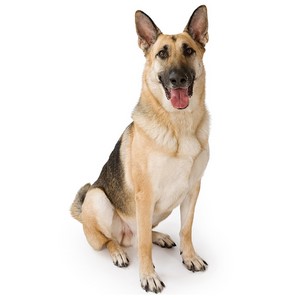How to Train a German Shepherd?
1. When training your German Shepherd, giving appreciation and positive support is really useful and vital German Shepherd puppy.
2. In no scenarios, ought to you shout at your young puppy or punish them for not listening — positive support is the best method to train your German Shepherd.
3. When it pertains to praising your German Shepherd, instead of patting them on top of their head or back, give them a pat under their chin or chest as it is more caring for them.
4. Training your German Shepherd shouldn’t be carried out in long sessions. It is more efficient to train them with short but frequent sessions throughout the day. It’s advised to train a German Shepherd 3-5 times a day for 5-minute sessions. This ensures you are getting their full attention.
5. When your pup has effectively done what you asked them to, reward them with a pet dog treat.
6. A huge error that a great deal of German Shepherd owners make is letting their young puppy do things at a young age that they would not want them to do later on (e.g. laying on furniture). Don’t let them enter into this habit otherwise it will be very tough to alter your pet’s behaviour later.
7. Pup training for a German Shepherd must begin at 8 weeks old and they usually run at full learning capacity between 8-12 weeks.
8. Your tone of voice is your biggest training aid – when applauding utilize a happy tone, and a firm tone when saying “No” (but make sure you’re not screaming).
How to Potty Train a German Shepherd puppy?
One of the first things you will have to do when bringing home a new German Shepherd, is toilet training them. It will take some time and will be tough but with our guide on how to potty train a German Shepherd young puppy, you will arrive sooner than later on.
1. Take your German Shepherd young puppy out frequently: To begin, take your German Shepherd outside every hour that you can and wait there with them for a few minutes to see if they need to go. This will restrict the opportunities of them going to the toilet inside and teach them where they need to be doing it. When they do properly go to the toilet outside, make certain you applaud them and even give them treats. Over time, they will know they need to go to the toilet outside. As they are improving, extend the amount of time in between going outside.
2. Discover the signs your German Shepherd has to go: Common signs that German Shepherds and all pet dogs show when needing to go the toilet consist of: smelling the flooring, squatting, circling, barking, and sitting at the door that leads outside.
3. Take your German Shepherd to the very same spot whenever: It’s important that you constantly attempt to take your German Shepherd young puppy to the same spot through the exact same exit when taking them to go to the toilet. This will teach them to just enter the same area and will make cleaning up after them a lot easier for you. Likewise, the exit needs to be someplace quickly noticeable so you know when they are heading towards there or waiting there that they need to go to the toilet.
How to Train a German Shepherd Not to Bite?
The Center for Disease Control specifies that canines bite approximately 4.5 million individuals annually. This high number may seem a bit distressing, however our guide on how to train a German Shepherd not to bite will help ensure your German Shepherd does not add to this.
1. Socialize your German Shepherd at a young age: The best thing you can do for your German Shepherd is introducing them to a lot of brand-new individuals, places, and scenarios as you can. A well-socialized German Shepherd young puppy is much less likely to be distressed in brand-new scenarios, and will then be less most likely to be aggressive.
2. Neuter your German Shepherd: There is some proof that states that neutered dogs tend to be less aggressive and less likely to bite.
3. Take part in obedience training: A loyal German Shepherd is a lot easier to control. If you can control your dog’s behavior, it is less most likely to be aggressive and bite.
4. Know your German Shepherds body language: It is well known that a German Shepherd who is frightened of having their area attacked has the possible to be aggressive and bite. Behaviors like raised heckles, bared teeth, and a lowered head are all signs that a German Shepherd is uneasy. If you observe your German Shepherd canine showing this type of body language, try to comfort them and eliminate them from this scenario when its safe.
How to Train a German Shepherd to Stop Barking?
Getting your German Shepherd to stop barking takes practice, time, and consistency. It does not take place overnight however our suggestions on how to train a German Shepherd to stop barking will be very useful.
1. Do not shout back: Screaming will just get your German Shepherd to bark a lot more since they believe you are joining in. Speak strongly and calmy, but do not scream.
2. Teach your German Shepherd to comprehend the word “Quiet”: Whenever your German Shepherd is barking, say “Quiet” in a stong and calm voice. Wait on them to stop barking and when they do praise them with a reward.
3. A tired German Shepherd is a quiet German Shepherd: If your German Shepherd barks a lot by themselves, take them out for more regular workout or play. When tired, they are less likely to bark.










